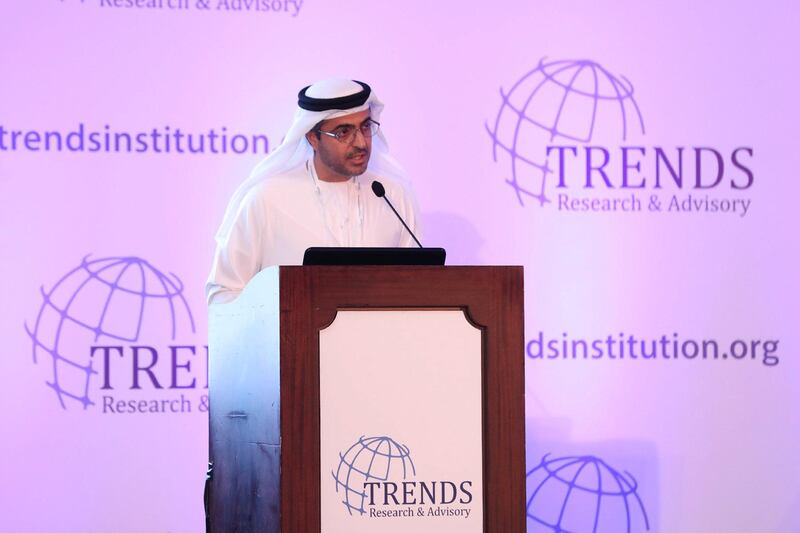Several policy advisers and a former American ambassador expressed concern in Abu Dhabi over President Donald Trump’s lack of ability to take real action and unwillingness to enact real Middle Eastern foreign policy change.
Dr Ahmed Al Hamli, president of TRENDS think tank, said despite all expectations, the region has seen no positive changes in US foreign policy towards the Middle East in the past eight months.
He said the rhetoric coming out of Washington seems to reflect the same strategies from the Obama administration and that no real action has been taken by the country.
President Trump, who many predicted would take a much harder stance on Iran has done little to change the nuclear deal made by the former administration.
_________________
Read more:
Trump weighing more aggressive Iran strategy in Gulf
Kuwait's closer links to US lead to stronger governance
If the US walks away from the Iran nuclear deal, it will live to regret it
_________________
Dr Al Hamli said, “The GCC doesn’t see anything on the horizon that gives them conviction to be hopeful for positive changes. Moreover, it doesn’t seem as though the US is trying to curb the expansion of Iran throughout the region.”
He said there still remains a contradiction between President Trump’s rhetoric through speeches and social media statements, such as his tweets.
He said inconsistencies are troublesome for world leaders as identifying US policy becomes a guessing game and the future of American interests in the region remain unclear.
Alberto M Fernandez, former ambassador to the Republic of Equatorial Guinea, said the US should resolve its own national agenda before addressing those of the Middle East region.
He said that even though Qatar is a main concern for Gulf countries the region should not expect much from the US in terms of action.
The GCC should set a clear political agenda that sets forth its interests and could lead discussions to direct the US on how it should strategize towards the region, the former ambassador said.
The Obama administration failed to understand the dynamics and context of Middle East tensions, and used the Iranian nuclear deal as an example of empowering Iran while neglecting associated threats.
Dr Roby Barrett, a scholar at the Middle East Institute and Senior Fellow at the Joint Special Operations University, outlined perspectives and trends in the contemporary Middle East and highlighted conflicts between constructs conceived by the West and realities.
The US must rethink its strategy towards the region and Western thinking requires new conceptualisation, he said.
The Arab Gulf has modernized and maintained its stability and prosperity through traditional political institutions, highlighting the fact that the Western-style democracy is only one form of governing and not necessarily the right way, he said.
TRENDS Research & Advisory of Abu Dhabi organized an event titled, “What is Next for USA Foreign Policy and the GCC?” held in the St. Regis Hotel, Abu Dhabi.





